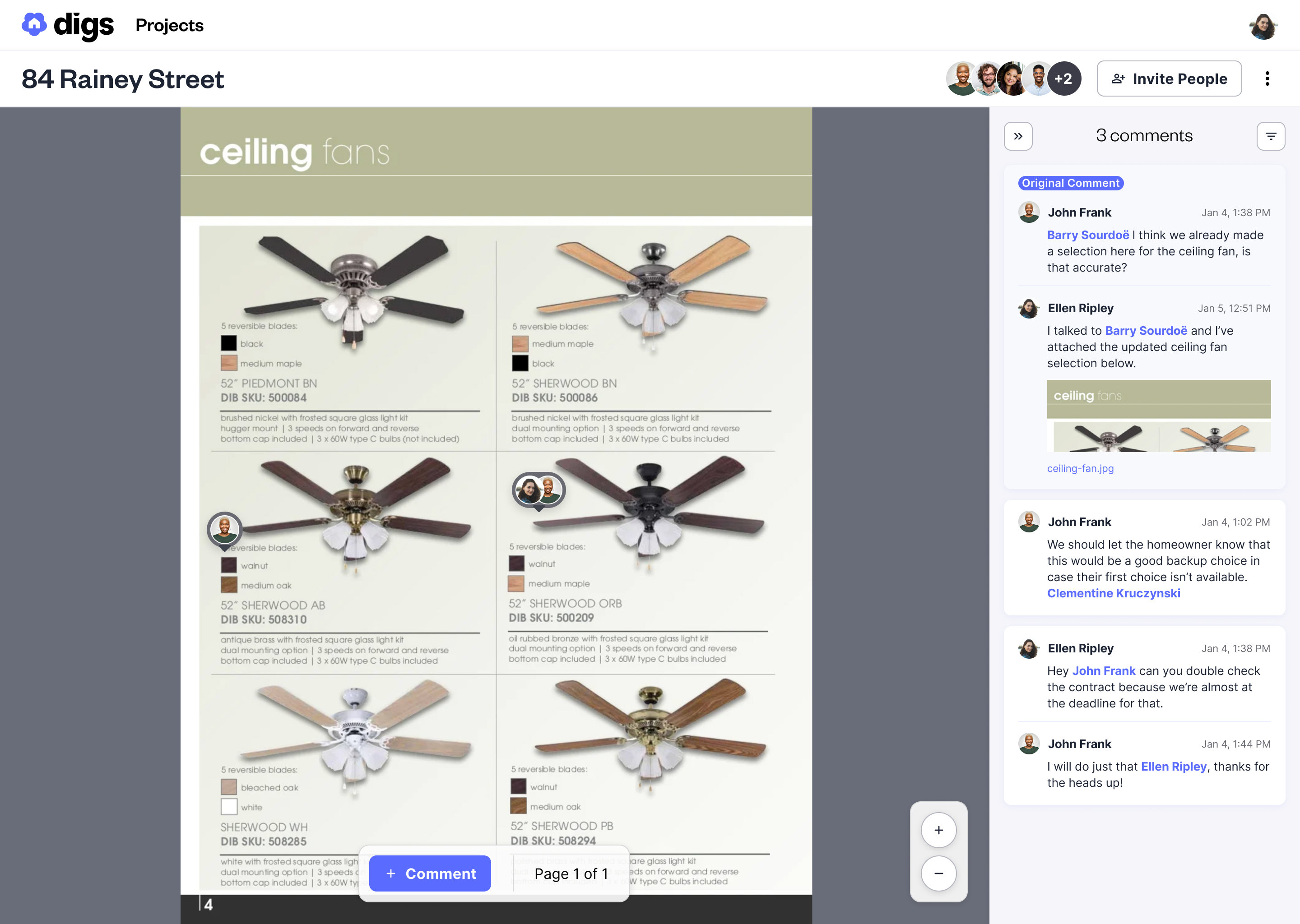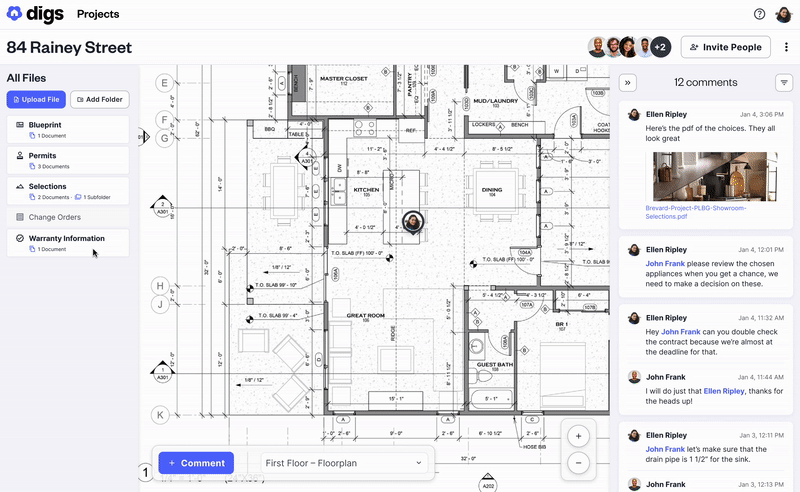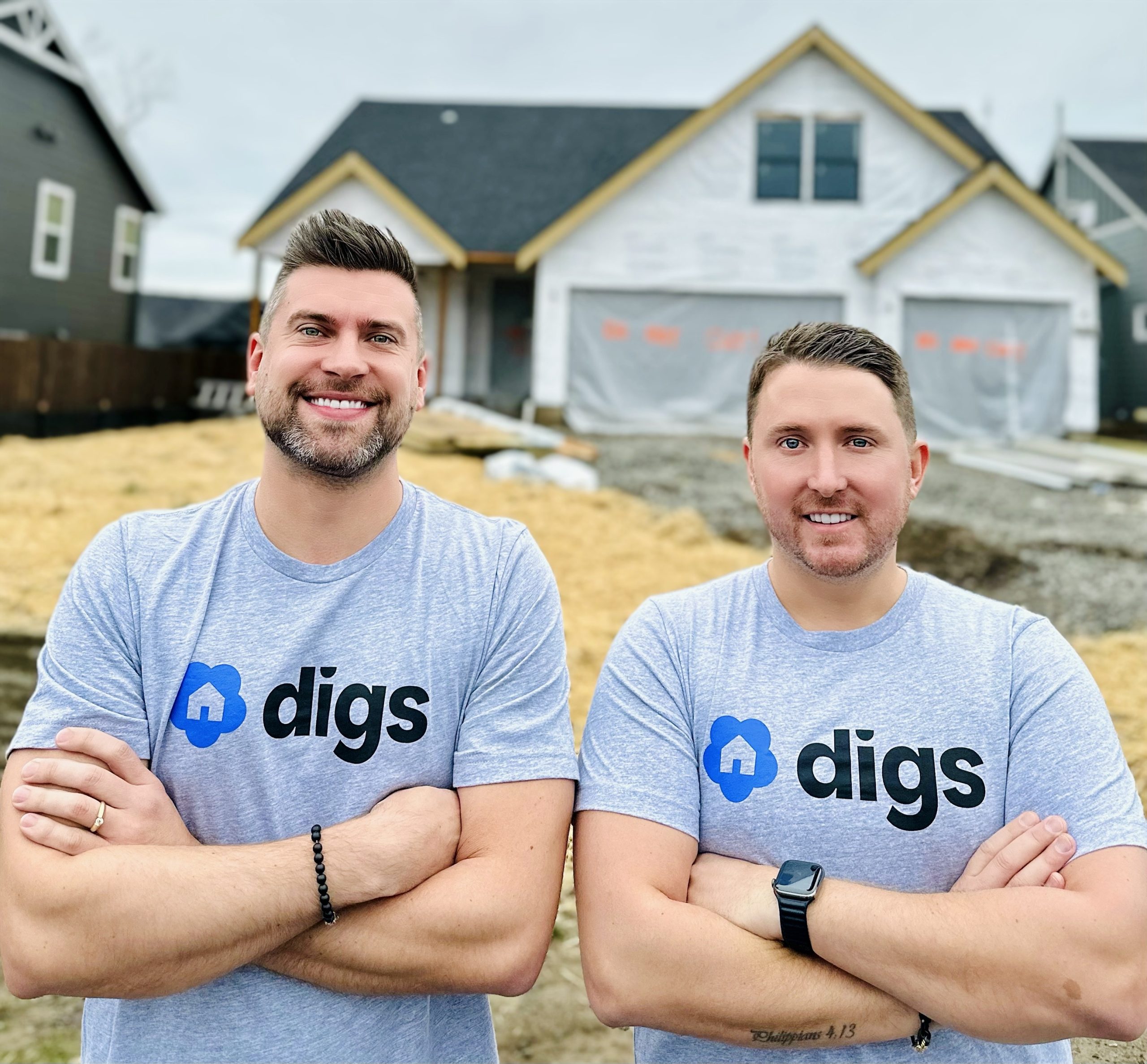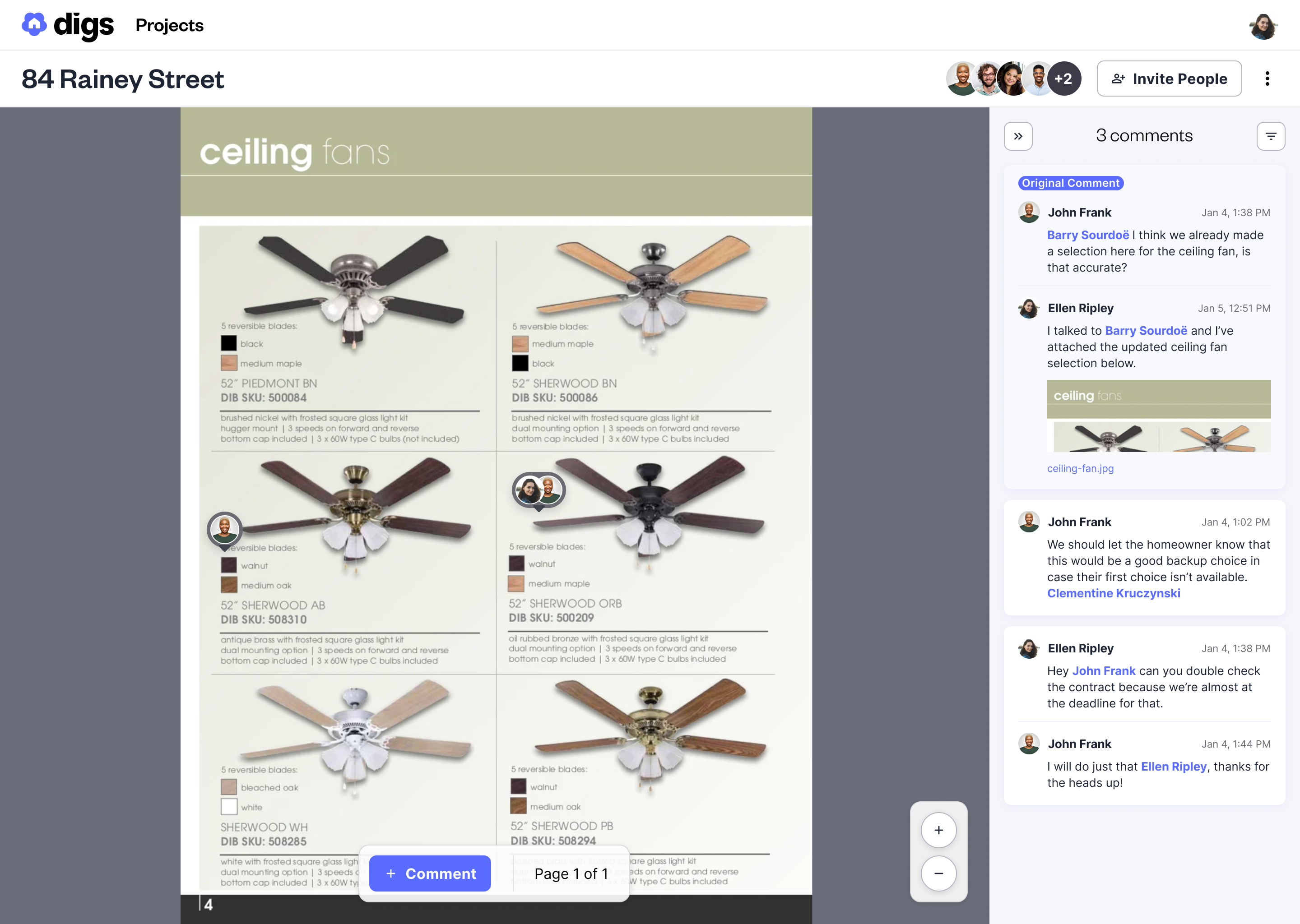
Digs is a Figma-like collaboration tool for home builders and suppliers
Digs, a Vancouver, Washington-based startup that is developing a collaboration tool for homebuilders and their vendors, is coming out of stealth today and announcing a $7 million seed funding round from Fuse, Flying Fish, Betaworks, Legacy, PSF, GFR, and others.
The company was co-founded by Ryan Fink and Ty Frackiewicz. For Fink, this is his second attempt at a home-centric startup. His previous company, Streem, aimed to build a digital twin of the home by using phone cameras and augmented reality. The idea here was to connect home owners with remote experts. Streem was eventually acquired by Frontdoor. He told me that after leaving Streem, he felt like he had never really been able to accomplish the service’s original mission, so he decided to take another stab at it, but from a different perspective and with the goal of understanding the builder side.
“[Ty and I] both built homes, so we understand the homeowner side. And then the technology side around computer vision and machine learning, we both have some pretty good experience there, too,” Fink explained. “So we wanted to try to figure out how you can create a digital understanding of the home without making anyone go and scan it.”
There is one obvious point in time when you can capture all of this data, which is when the home is being built (and the team wants to tackle existing homes, too, but at a later time). Typically, the architects, builders and vendors all work from PDFs these days — which could be drawings or inventory lists.
At the core of Digs then is a Dropbox-like file sharing tool, with Figma-like collaboration features on top and the necessary computer vision tools to read and understand blueprints and other documents.
“One of the things we learned was that the first thing the builder does is send out the contract and the blueprint to all these different vendors, they print it out, mark it up, scan it back in — and the builder now gets seven or eight different versions. Not only are we storing all of the data and selections and choices, but we’re creating that collaboration piece. So when all the decisions are made, it’s digital instead of on pen and paper.”
One major decision the team made from the outset was to make very few changes to the overall workflow that builders are already used to and instead focus on the biggest pain points. While the industry today is less tech adverse than it may have been in the past, Fink believes there is a growing desire to provide better experiences and builders are already somewhat used to using Dropbox or SharePoint to store files.
“We’re starting where they feel very comfortable — we’re starting with something that doesn’t feel like software,” said Fink. “And we’re trying to take on a lot of the complex compute in the background that just does very simple things that makes their lives better.” This means the service can automatically segment rooms from the blueprints, for example, and tie that into an existing project management tool.
In addition to providing this workspace to collaborate with vendors, Fink also stressed that a tool like Digs helps them with the homeowner handoff once the work is complete. Currently, that handoff includes a large physical binder with all of the information and maybe a few pamphlets that then end up in a drawer somewhere. “A lot of the builders we spoke to said they want to provide a better experience for the homeowner, but they just haven’t had time to really refine it,” explained Fink.
The team currently wants to focus on new builds and then, over time, also move into existing homes. That’s a harder problem to tackle, but Fink believes that as the team evolves the platform, it may be able to go back to its expertise with using cameras to digitize these spaces.
“The home has been left behind while the rest of the world is being digitized. The Digs team came to us with a vision of digitizing and bringing collaboration and automation to the place where people spend most of their time, their digs (homes). That’s a big vision, and one we feel strongly needs to exist in the world,” says Brendan Wales, Founding Partner at Fuse.




